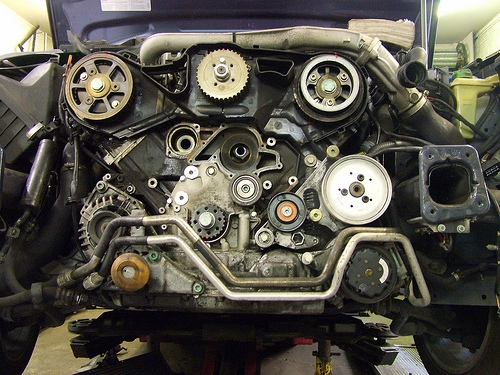
Many modern cars feature ignition coil packs--more commonly known as simply coil packs--as part of the vehicle ignition system. These ignition components help provide motorists a reliable start and uninterrupted operation.
Ignition coil packs, a modern replacement for distributors, prompt a vehicle's spark plugs to fire. As the plugs fire, the resulting spark ignites fuel in the engine's combustion chamber to power the vehicle.
When viewing the engine, the ignition coil pack appears metal and cylindrical with a domed top and protruding "tower." The exact size of the coil pack varies from vehicle to vehicle.
Ignition coil packs contain two spools of copper wiring. When the vehicle starts, these wires produce a magnetic current that causes a rotating electrical contact to spin. As this contact passes over connected spark plug wires, it sends an electrical signal down the wire to prompt the plug to fire.
Coil packs replaced carburetors, ignition components that made vehicles difficult to start on cold mornings or after sitting for an extended duration. Because coil packs rely on a magnetic field and electricity, they operate more reliably than their older counterparts.
Although coil packs provide more reliable operation than carburetors, they do occasionally fail and require replacement.